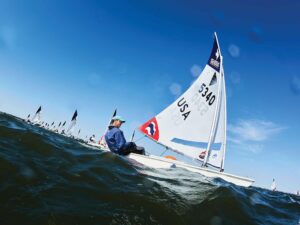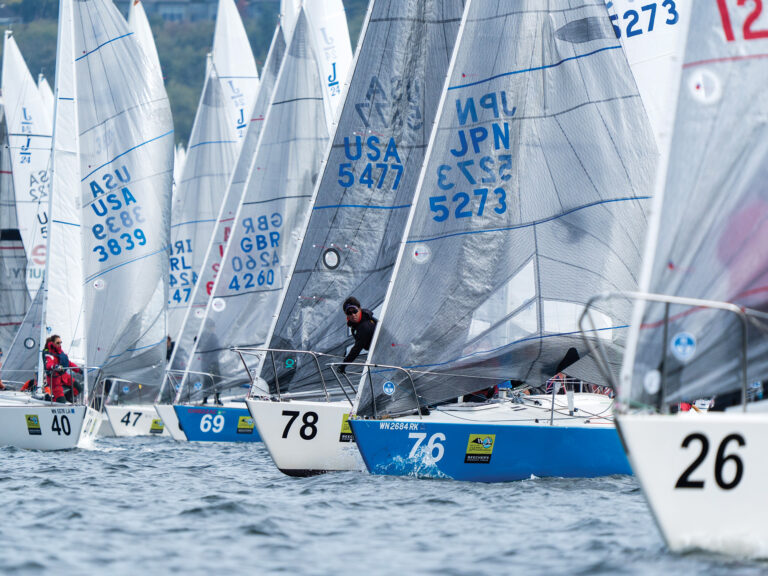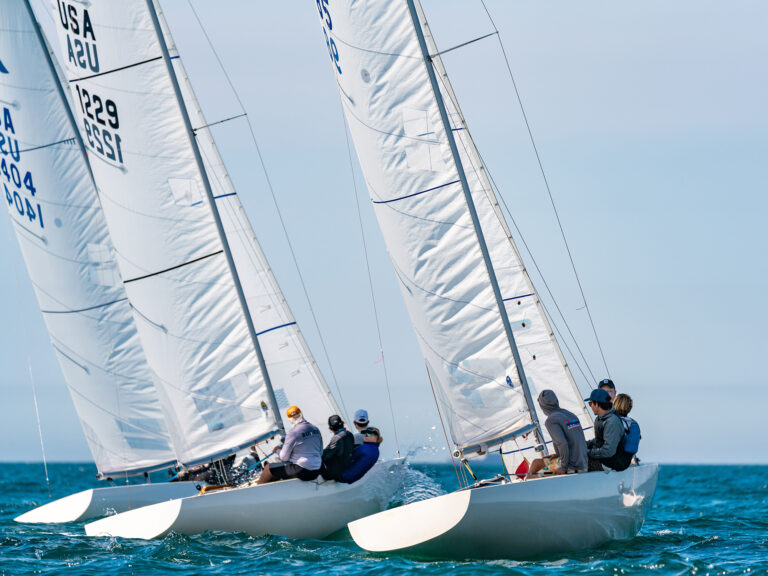LISBON, Portugal-The upcoming ISAF Annual Conference, Nov. 9 to 17, will provide a student of politics with a festival of high drama, with blood on the carpet of the Hotel Altis, and Lady Macbeth slipping away into the shadows while the wicked witches dance around the cocktail bar.
While it’s not one of the regular keystone conferences, with the change of the Racing Rules or the selection of the Olympic classes, this year’s gathering in Lisbon is full of promise. One late submission by ISAF president Paul Henderson’s will bring to a head the arrangement between the ISAF and the Offshore Racing Council. The submission has stirred activity in other areas, as well.
First moves were made some time ago to bring the Offshore Racing Council, as it was then, into the body of ISAF, to consolidate the Federation as the single voice in the sport. This time, in order to regularize it properly, the President’s submission, in four parts, is to detail how best this should be achieved. There are those who will not agree with the way this is done, mostly in the Offshore Racing Committee, as the ORC is now known.
These proposals are:
The ISAF Council disbands the ORC Management Sub-Committee following the appointment in November 2001 of a new ISAF Offshore Racing Committee.
The work on the IMS rule be continued by a group, potentially comprised of the members of the current Management Sub-Committee, operating as an “IMS Class Association.”
The employment contracts for the two SAIL (ISAF) staff that currently undertake work for the Offshore Racing Committee be transferred to the new organization established under 2.
All assets of the “old” Offshore Racing Council are transferred to the new organization established under 2.
Henderson, in this submission believes that following the ISAF/ORC merger, the work of the ORC Management Sub-Committee overlaps and conflicts with the terms of reference for the ISAF Executive Committee. By axing this sub-committee, the Offshore Racing Committee can work without having to deal with conflicting priorities and that the proactive work on the IMS should continue on its own without having to be dealt with by ISAF staff, and thus become, like the Farr 40 Class Association, for example, treated as a class organization.
The Farr 40, Mumm 30, and Mumm 36 Class Associations, in another late submission, have requested that their classes be removed from the oversight of the Offshore One-Design Sub-Committee and be placed under the jurisdiction of the ISAF Keelboat Committee. The Farr 40 class has requested that it would like to continue to issue rule interpretations, as per its class rule and contract with the Federation. They all believe that the ISAF Keelboat Committee would serve them better because the ORC, by definition, is responsible for offshore racing, and that this move will eliminate any conflict of interest, together with its political issues, for the larger one-design keelboats whose principle racing is of the inshore type.
Those submissions were hardly in place when there were two from the Chairman of the ORC, Hans Zuiderbaan, which concerned the ORCs place in the world of handicap administration. They attempt to establish a International Handicap Rule/System Sub-Committee of the ORC, to be approved and sanctioned by the ISAF Council, to oversee the administration of each rule or system that applies to join, and its responsibility will be to review the rule changes that “will affect the initial character or viability of the submitted rule.”
There will likely be considerable opposition to this from the RORC/UNCL on behalf of the IRC, with its “secret” formula. Unless the proposed sub-committee of the ORC had fullest details of the IRC, its unlikely that it would accept the IRC-the broadest and most successful of the handicap systems used for a wide variety of boats-and the RORC/UNCL Committee which deals with the rule is extremely unlikely to reveal the “secret” that is the heart of the rule.
In addition, the IHR/S Sub-Committee seeks the right to be funded from each of the rules it oversees. That, it is thought, might be a sticking point with the RORC/UNCL Committee for the IRC, but all requests for a comment from an executive member of the joint clubs organization, were politely and firmly refused and only an off-the-record reply was available. From that, it can be deduced that theres opposition that will be developed as the days go by in Lisbon.
The Schedule of Meetings shows that almost everything to do with the ORC is to be held behind closed doors. Paranoia.









